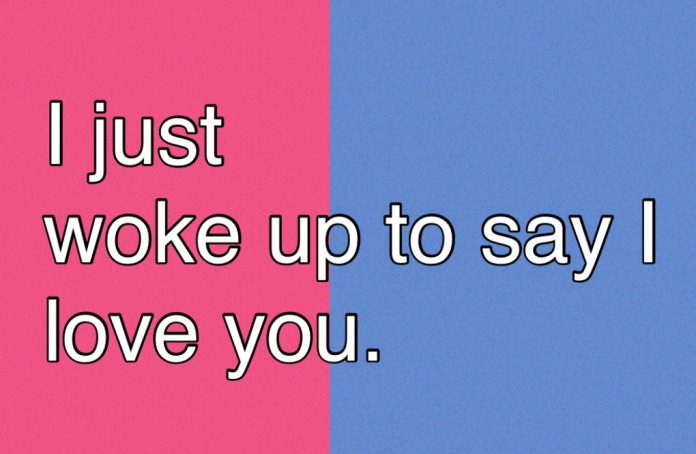Let us begin here:
In recent years, the term “woke” has become a cultural lightning rod, symbolising awareness of social injustices and systemic inequalities. Originally rooted in Black American vernacular, it has since been co-opted, diluted, and weaponised across the political spectrum. While the far right has long been a vocal critic of “woke culture” and proponents of ‘hate politics’, it is arguably liberals and the politics of identity that are doing far more to undermine its original intent and effectiveness.
The Liberal Co-Optation of Woke
Liberals, particularly in the West, have embraced “wokeness” as a badge of moral superiority. However, this adoption has often been superficial, reducing complex social justice issues to performative gestures. Corporations now champion diversity and inclusion while maintaining exploitative labour practices. Politicians pay lip service to racial equality while failing to address structural racism. This hollowing out of “woke” has turned it into a buzzword, stripped of its radical potential and reduced to a marketing tool.
The liberal tendency to focus on individual identity over collective action has further diluted the movement. By prioritising representation, such as having more women or non white people in boardrooms, over systemic change, liberals have created the illusion of progress while leaving oppressive structures intact. This approach has led to a form of identity politics that is more about visibility than justice, more about symbolism than substance.
The Fracturing of Solidarity
Identity politics, when wielded without nuance, can fracture the very solidarity needed to challenge systemic oppression. Liberals have often exacerbated this by framing issues in ways that pit marginalised groups against each other. For example, the focus on gender identity has sometimes been framed in opposition to concerns about biological sex, creating unnecessary divisions within progressive movements. Similarly, the emphasis on racial identity has occasionally overshadowed class-based struggles, ignoring how economic inequality intersects with race, gender, and other identities.
This fragmentation has allowed the far right to caricature “woke” as a divisive and exclusionary ideology. While the far right’s attacks are often disingenuous, liberals’ failure to articulate a cohesive vision of social justice has made “woke” an easy target. The result is a growing backlash, not just from the right but also from disillusioned progressives who feel alienated by the movement’s increasing elitism and insularity.
Ash Nails It
"Good ideas have been blown out of proportion and applied to everything, and at no point has anyone gone, 'get a grip'."
— PoliticsJOE (@PoliticsJOE_UK) February 20, 2025
Woke is dead. Ash Sarkar breaks it down.@AyoCaesar pic.twitter.com/ZzgcVlgoMs
The Rise of Performative Activism
Social media has amplified the liberal tendency towards performative activism, where posting a hashtag or changing a profile picture is seen as sufficient contribution to a cause. This “slacktivism” has created a culture of virtue signalling, where the appearance of being “woke” is valued more than tangible action. The far right has capitalised on this, mocking the superficiality of such gestures and using them to discredit broader social justice movements.
Moreover, the liberal obsession with language policing, while often well-intentioned, has alienated many who might otherwise support progressive causes. The focus on “correct” terminology has been weaponised by critics to portray “woke” as overly concerned with trivialities, distracting from more pressing issues like poverty, healthcare, and climate change.
The Far Right’s Role: A Distraction
While the far right has undoubtedly contributed to the backlash against “woke,” its impact is often overstated. The far right thrives on opposition, and its attacks on “wokeness” are part of a broader strategy to galvanise its base. However, it is the internal contradictions and failures of liberals and identity politics that have done the most to erode the credibility of “woke.”
By reducing social justice to a series of performative acts and divisive identity politics, liberals have undermined the radical potential of “woke” as a force for systemic change. The far right’s role in this process is largely reactive, exploiting the weaknesses already present within the movement.
Reclaiming Woke
If “woke” is to survive as a meaningful concept, it must be reclaimed from both liberal dilution and far-right caricature. This requires a return to its roots in collective action and systemic critique, rather than individual identity and performative gestures. It also demands a more inclusive approach that bridges the gaps between different marginalised groups, focusing on shared struggles rather than isolated grievances.
Ultimately, the death of “woke” will not come from the far right’s attacks but from the failure of those who claim to champion it to live up to its ideals. Liberals and proponents of identity politics must reckon with their complicity in this process if they are to prevent the movement from becoming little more than a historical footnote.
In the end, the true enemy of “woke” is not the far right but the hollowing out of its radical potential by those who have turned it into a brand. To revive it, we must move beyond symbolism and towards substantive change.
Wokeness in Memes
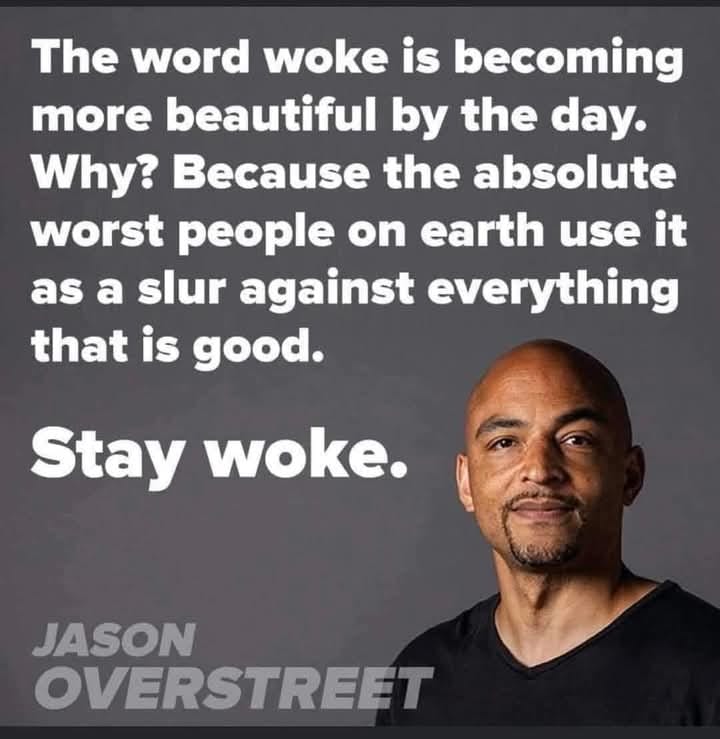
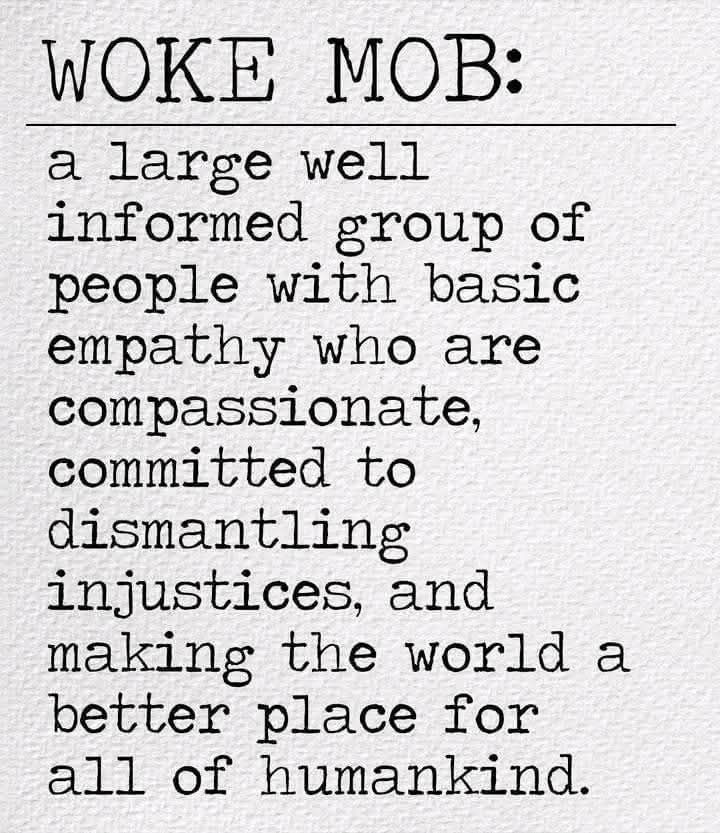
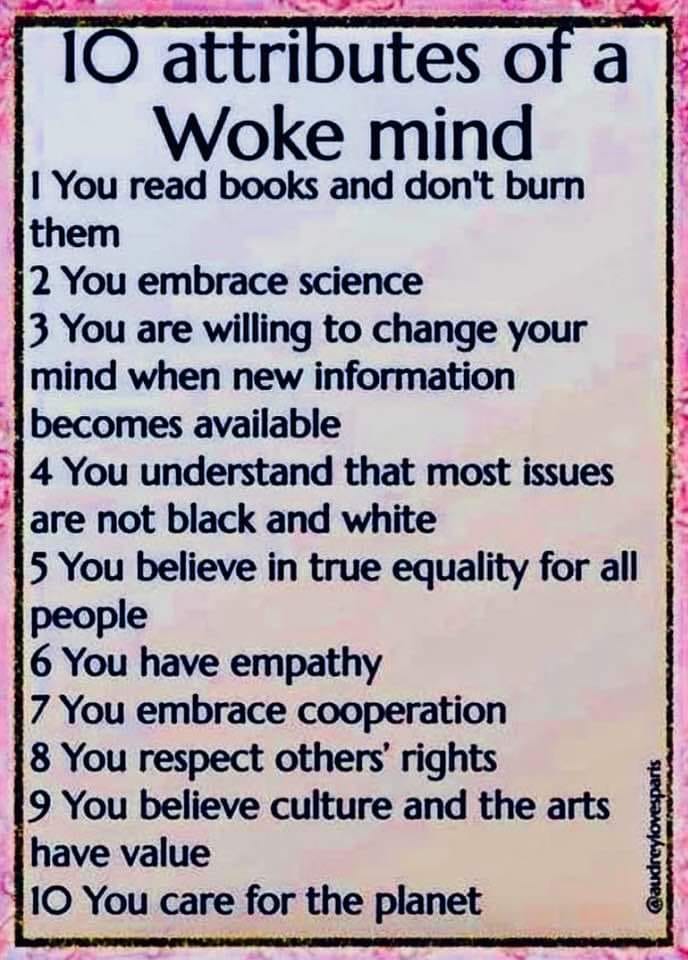
The last word from Audrey:
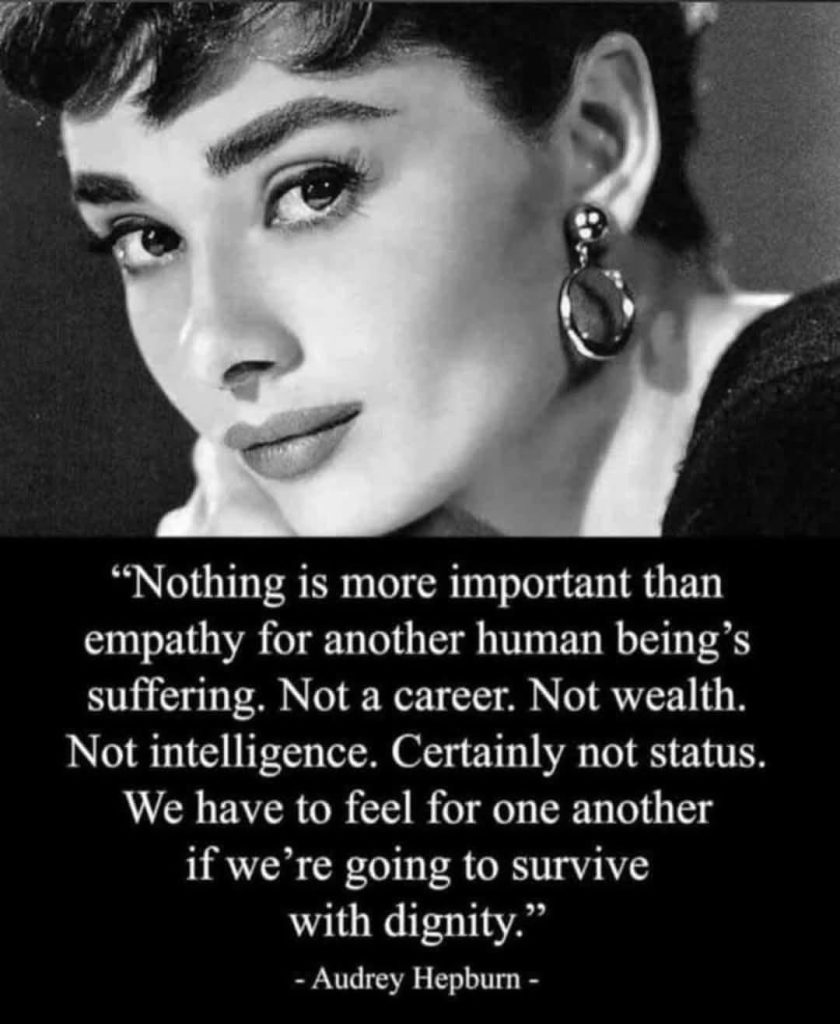
Be a proper woke not a performative woke.

